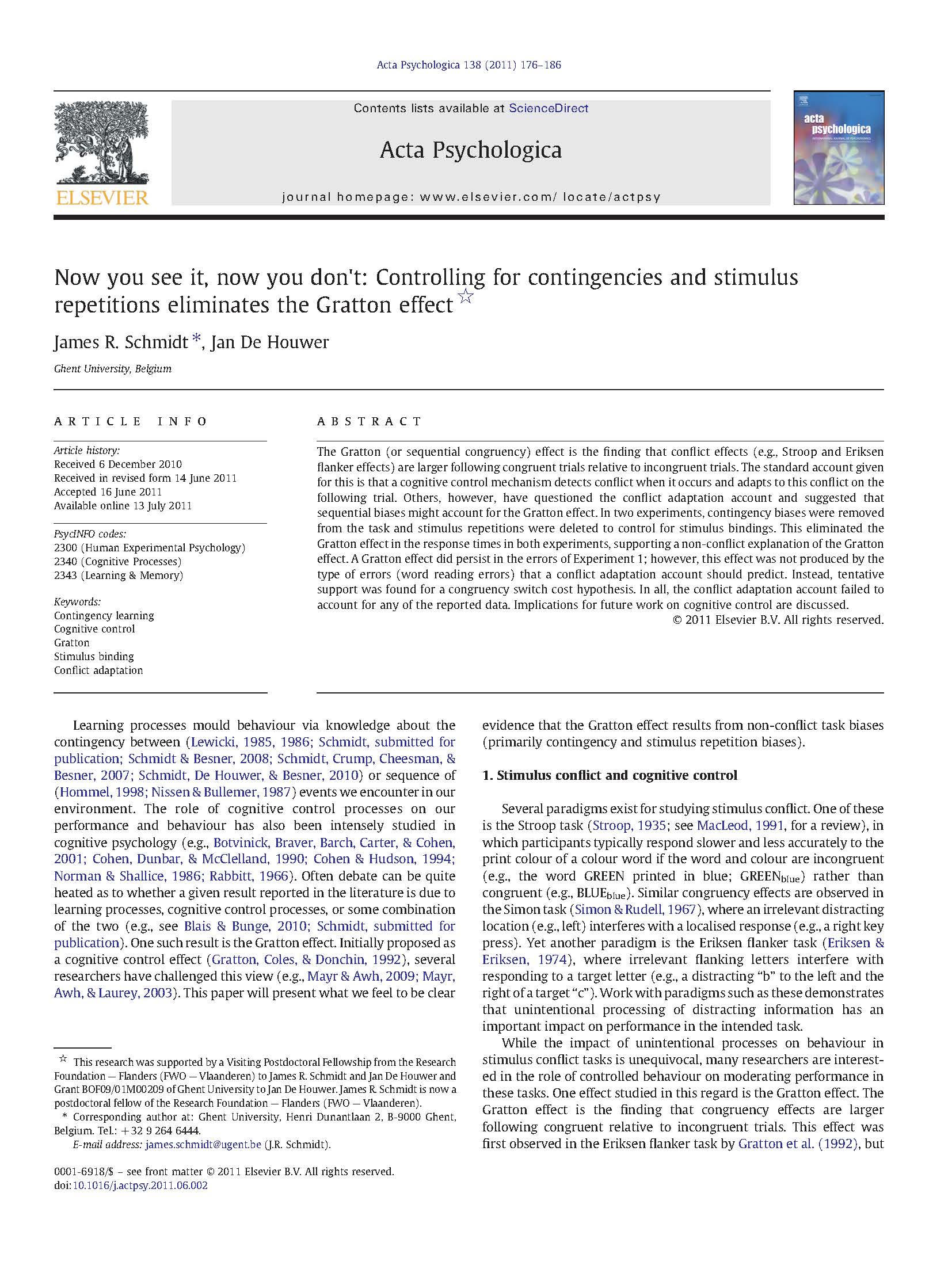The Gratton (or sequential congruency) effect is the finding that conflict effects (e.g.. Stroop and Eriksen flanker effects) are larger following congruent trials relative to incongruent trials. The standard account given for this is that a cognitive control mechanism detects conflict when it occurs and adapts to this conflict on the following trial. Others, however, have questioned the conflict adaptation account and suggested that sequential biases might account for the Gratton effect. In two experiments, contingency biases were removed from the task and stimulus repetitions were deleted to control for stimulus bindings. This eliminated the Gratton effect in the response times in both experiments, supporting a non-conflict explanation of the Gratton effect. A Gratton effect did persist in the errors of Experiment 1; however, this effect was not produced by the type of errors (word reading errors) that a conflict adaptation account should predict. Instead, tentative support was found for a congruency switch cost hypothesis. In all, the conflict adaptation account failed to account for any of the reported data. Implications for future work on cognitive control are discussed.
Now you see it, now you don’t: Controlling for contingencies and stimulus repetitions eliminates the Gratton effect
